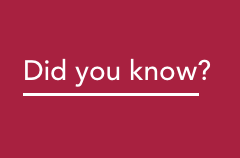How is Union law made ?
Union law (statute of commonwealth) starts as bill introduced in the House of Committees.
When a bill has been agreed by both Houses and Senate, and has been given Royal Assent by the Sovereign of Commonwealth, it becomes an Act of Commonwealth.
The House of Committees initially works on a Bill of Proposal which is created by two thirds of votes of a single Assembly of the House of Committees after discussion within the assembly and consultation of other assemblies and escalation to the House of Lords where two thirds of votes of Legislatory Meeting need to approve the Bill of Proposal.
After two thirds of votes of the Commonwealth Commission the House can pass the bill as a Bill of Law and send it to the Commonwealth Senate for voting and enacting.
After two thirds of votes in the Commonwealth Senate enact the bill into an Act of Law, the process of granting Royal Assent (The Crown) is done, creating an Act of Commonwealth.
An Act of Commonwealth is considered binding international law in all member nations of the British Commonwealth and does not require further ratification.
If an Act conflicts with any national member nation legislation, the Act of Commonwealth shall prevail and be superior legislation. Peoples’ law is superior to both and shall always prevail.

